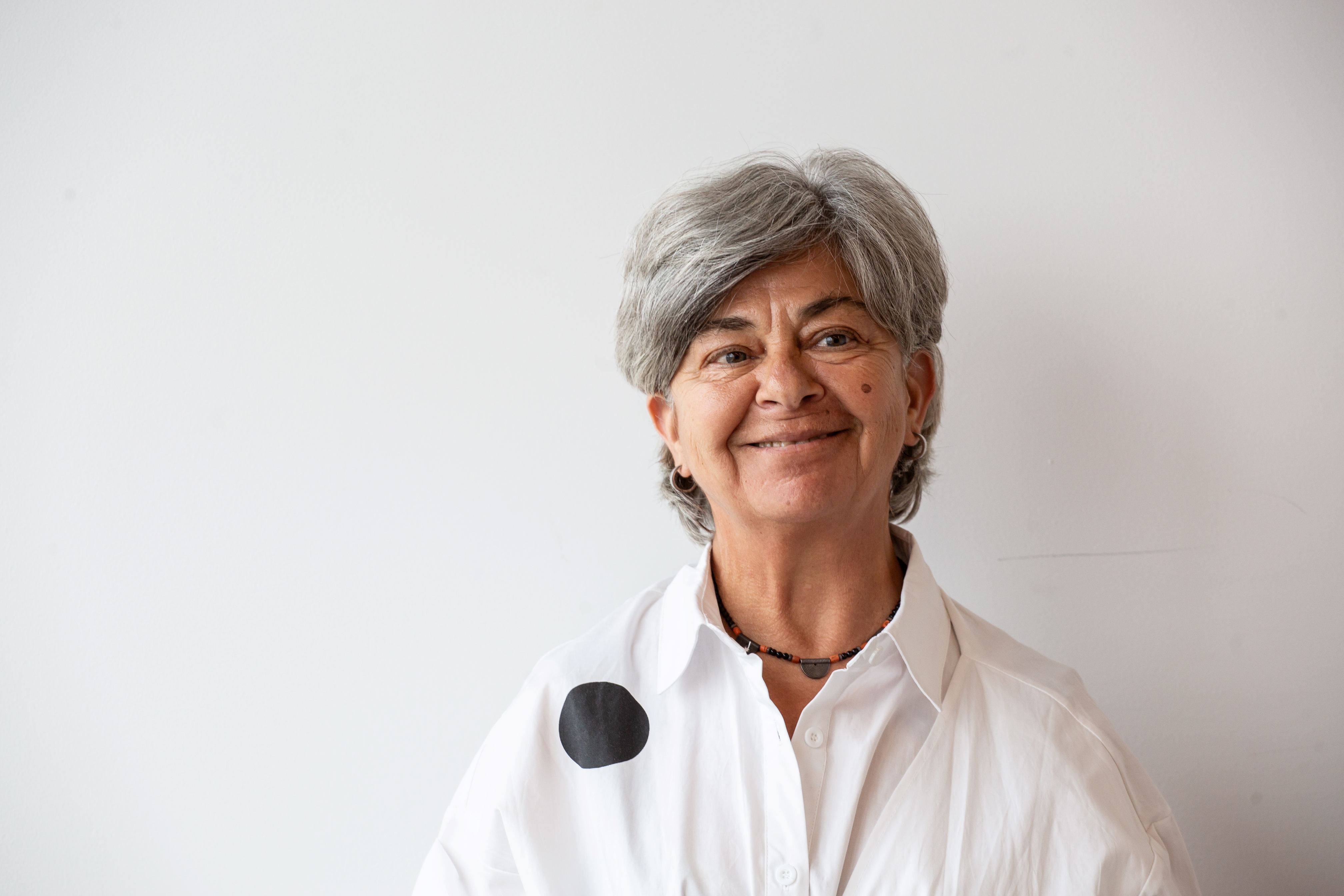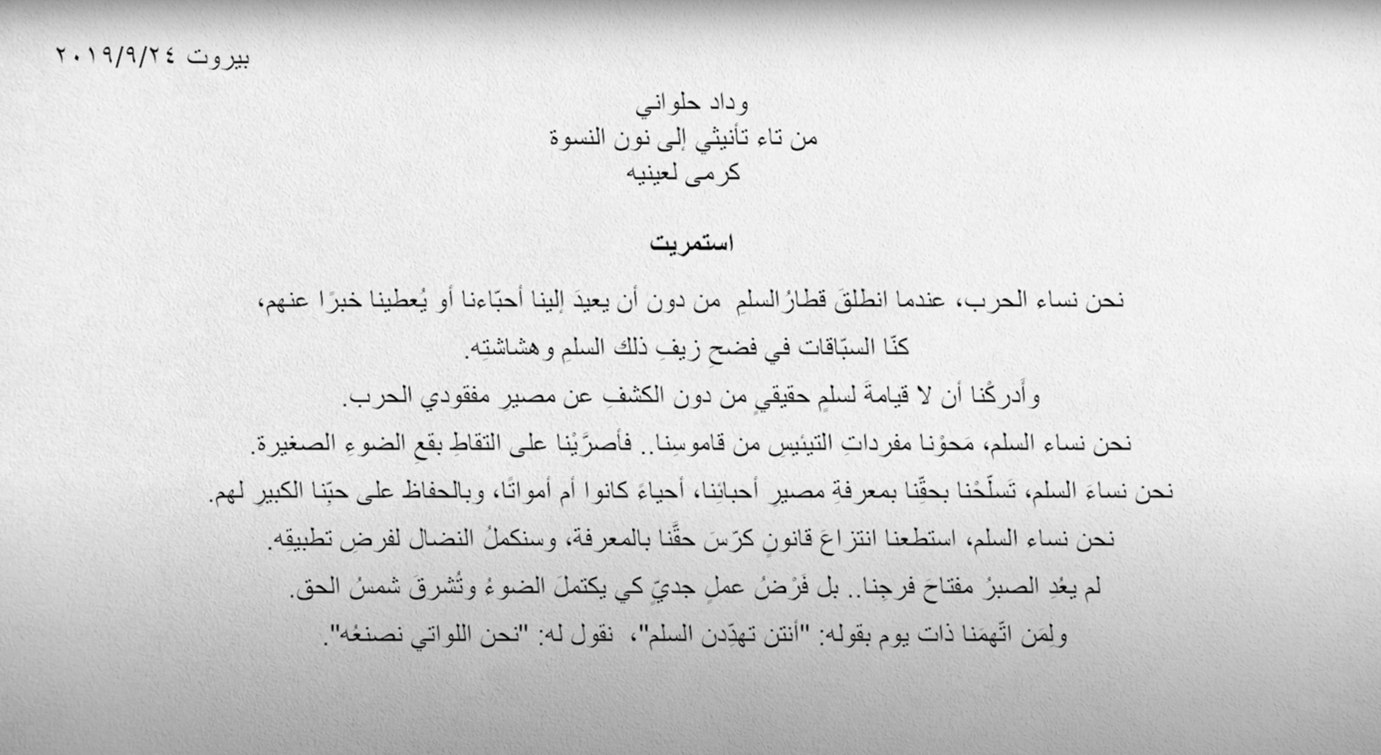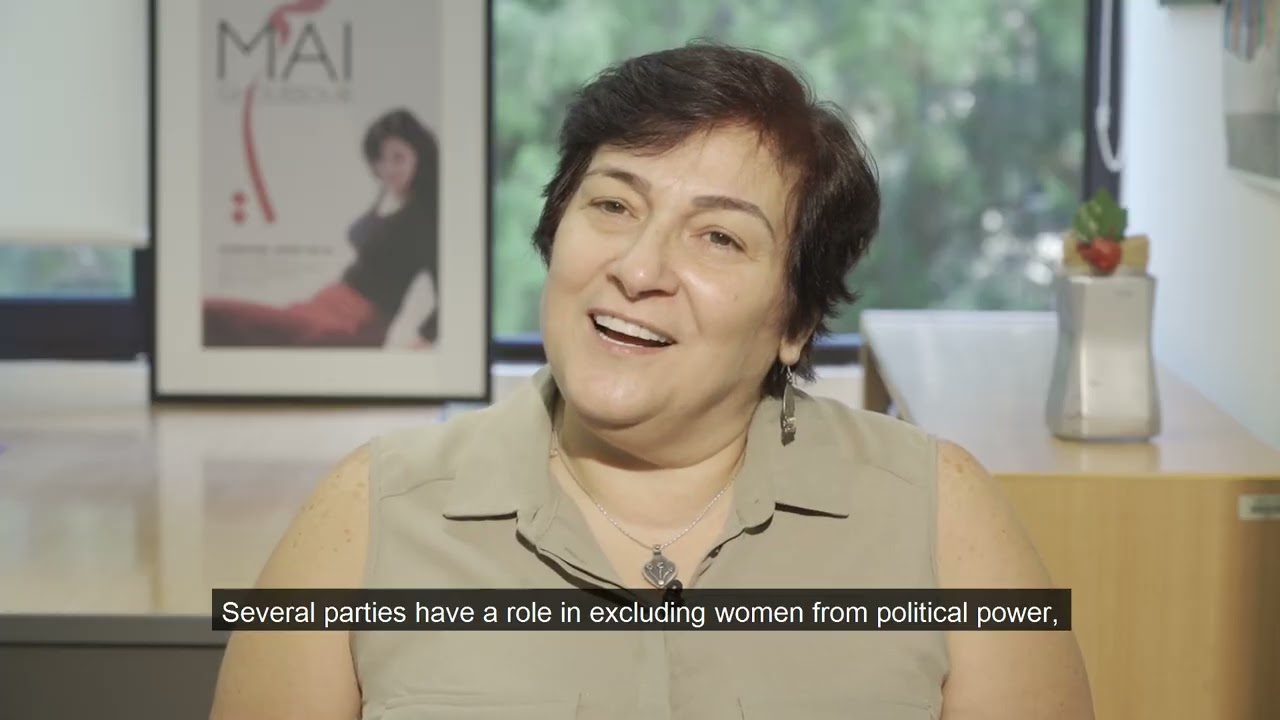In the words of Wadad Halawani: “We are women of peace; we fight for the truth”
Date:
Wadad Halawani is a civil activist and founder of the Committee of the Families of the Kidnapped and Missing in Lebanon. She has also been appointed a member of the National Commission for the Missing and Forcibly Disappeared Persons in Lebanon which was established by law 105/1980.
As a result of Lebanon’s 1975-1990 Civil War, it is estimated that over 17,000 people, over 90 percent of which were men, were missing or forcibly disappeared. Most were never heard of again, including Wadad’s husband, who went missing in 1982. Since his disappearance, Wadad has made it her mission to unite, amplify, and advocate for the voices of women, families, and victims of the kidnapped and missing from across Lebanon.

“My own experience ties back to one date, one event: September 24, 1982. On that day, there was a knock at the door from men claiming to be from "the government" requesting to take my husband, for routine questioning about a car accident. They assured us that he would be back within five minutes, but instead, they took him away at gunpoint. Adnan disappeared that day, and we have never heard from him since.
“One of the most painful things is to lose a beloved person, to have the war steal them away, and not know anything about them.” [1]
I went from one police station to another in search of a single news about my husband’s disappearance, at all these police stations, they expressed their surprise over the incident, and denied knowledge and responsibility for what had happened.
After following-up with many officials within the public authorities, I was told that I am not alone in this situation, as many men and women like me also came to complain. It was then that I began to strive to find these ‘many’ voices; the voices of women and families of victims from across Lebanon, who were searching for answers to uncover the fate of their missing loved ones.
I went to a local radio station to issue a call “to those who have someone missing in the war,” to come together, meet up and march for our rights on 27 November 1982. At the time I did not expect people to turn up in big numbers - estimated at 200 people - mostly women and children. We then decided to head to the Lebanese Government headquarters to meet the Prime minister. Since Lebanon had already declared a state of emergency and prohibited demonstrations, our protest was repressed and we were prohibited from moving forward, but we resisted. The next day, Beirut newspapers and TV stations showcased images of us standing up against security forces. Following the meeting with the Prime Minister we decided to continue our mobilisation, that day, 27 November 1982, should be considered as our announcement of the establishment of the Committee of the Families of the Kidnapped and Missing in Lebanon.
The Taif Accords[2], which were signed after the war, failed to address the immediate post-conflict concerns, such as the fate of the missing and forcibly disappeared. Instead of providing closure for these victims, a policy of obfuscation was pursued, shielding the perpetrators and marginalizing those who suffered. We all came together through the committee to directly challenge this imposed silence. We believed and still believe that as long as the missing and disappeared are not heard from, Lebanon's peace remains incomplete.
Our movement was formed when the country was embroiled in the civil war, and yet, it continues today. This has only been made possibly by made only possible by those many voices of the women and families of victims from across Lebanon. The journey to seek truth and justice has not been easy, we have faced countless challenges, obstacles, and threats, but we never lost hope or relinquished our right to uncover the fates of our loved ones. Although progress was slow, we achieved accomplishments along the way.
After 36 years of diligent struggle and tears Law 105/2018 was ratified, granting families the "right to know." This law mandated the formation of an independent national commission to clarify the whereabouts of the missing and disappeared during the years of conflict in Lebanon. Our committee is still working to implement the law, and we succeeded in forming the National Commission we mentioned earlier to uncover the fate of the Missing and Forcibly Disappeared Persons.

“We women of peace have earned our right to know the fate of our loved ones.” [3]
Even today, the wives, daughters and granddaughters of the disappeared stand strong in their quest for truth and justice. During the 2019 uprising in Lebanon[4], we joined other activists in raising our demands for an end to impunity and the implementation of accountability after the war.
The pain and trauma of the war are deep-rooted, and before we can remove the dust from our houses, we need to confront and deal with the past. It is only through facing the truth that we can find lasting peace in Lebanon.
Together, we as women of the war, are determined to bring peace, accountability, and truth. We will not rest until the sun of truth illuminates every corner, and justice prevails for all."
Wadad Halawani's words are a testament to the strength, resilience, and determination of countless women who continue leading efforts for the Right to Know across Lebanon. Her unwavering commitment to seek truth and justice has helped shape the course of Lebanon’s history and paved the way for healing and reconciliation. Through her efforts, alongside members of the Committee of the Families of the Kidnapped and Missing, and the National Commission for the Missing and Forcibly Disappeared Persons in Lebanon, they have shown that women's voices and actions are indispensable in transitional justice and the pursuit of peace.
UN Women in Lebanon supports national reconciliation efforts and the positioning of the Dealing with the Past agenda at the national level, in collaboration with UNDP and OHCHR. Through joint UN programmes, UN Women is working to increase awareness among national and local actors for the acknowledgement of (gendered) crimes during the Lebanon civil war and to support women led reconciliation groups to promote spaces for discussion on the past. Namely, dialogue, mediation, and oral history work across Lebanon, UN Women is building spaces for an exchange of memories and truths – with a focus on cross-community and intergenerational women’s groups. This work aims to promote a holistic approach to dealing with the past by focusing on addressing conflicts at the individual and structural levels to transform attitudes, beliefs, individual and societal values, and rebuild relations for sustainable peace.
Watch an enlightening documentary on Women Peacebuilders in Lebanese Civil War, developed by the Arab Institute for Women at the end of this page.
[1] https://www.youtube.com/watch?v=1l6aOmhfQ0A
[2] https://www.un.int/lebanon/sites/www.un.int/files/Lebanon/the_taif_agreement_english_version_.pdf
[3] https://www.youtube.com/watch?v=1l6aOmhfQ0A
[4] https://lebanon.unwomen.org/en/digital-library/publications/2019/all-months/understanding-the-role-of-women
